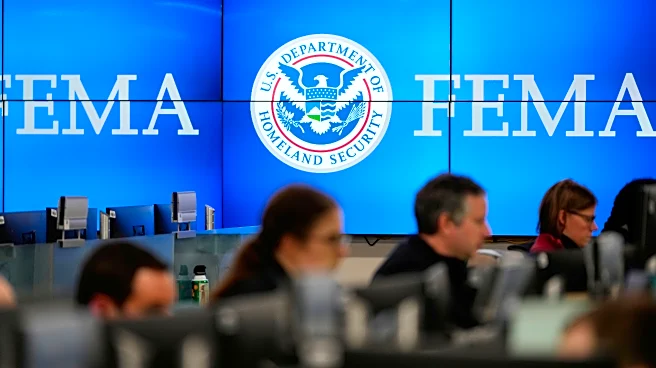What's Happening?
Visa and Mastercard have proposed a new settlement in the ongoing 'swipe fee' lawsuit, which has been in the courts for 20 years. The settlement aims to reduce swipe fees by 0.1 percentage point for five
years and cap standard consumer rates at 1.25% for eight years, representing a more than 25% reduction. Additionally, Visa and Mastercard have agreed to end their 'honor all cards' rule, allowing merchants to decline higher-cost credit cards and add surcharges for some cards. The settlement includes a $21 million 'merchant education program' to help merchants manage payment acceptance and costs. Despite these changes, the Merchants Payments Coalition (MPC) and the National Retail Federation (NRF) have rejected the settlement, arguing it does not sufficiently address the issues and calling for congressional intervention.
Why It's Important?
The proposed settlement is significant as swipe fees are a major operating cost for merchants, second only to labor. These fees have quadrupled since 2010, reaching $111.2 billion last year for Visa and Mastercard credit cards alone. The NRF and MPC argue that the settlement fails to address the core issues, such as the 'honor all cards' rule, which forces merchants to accept all cards, including high-cost rewards cards. The rejection of the settlement highlights ongoing tensions between merchants and card companies, with calls for legislative action to increase competition and reduce costs for merchants and consumers.
What's Next?
Both the MPC and NRF are urging Congress to pass the Credit Card Competition Act, which would require banks to enable cards to be processed over at least one unaffiliated network in addition to Visa or Mastercard. This change is expected to increase competition and potentially save merchants and consumers up to $17 billion annually. The ongoing legal and legislative efforts indicate that the issue of swipe fees will continue to be a contentious topic in the financial industry.











